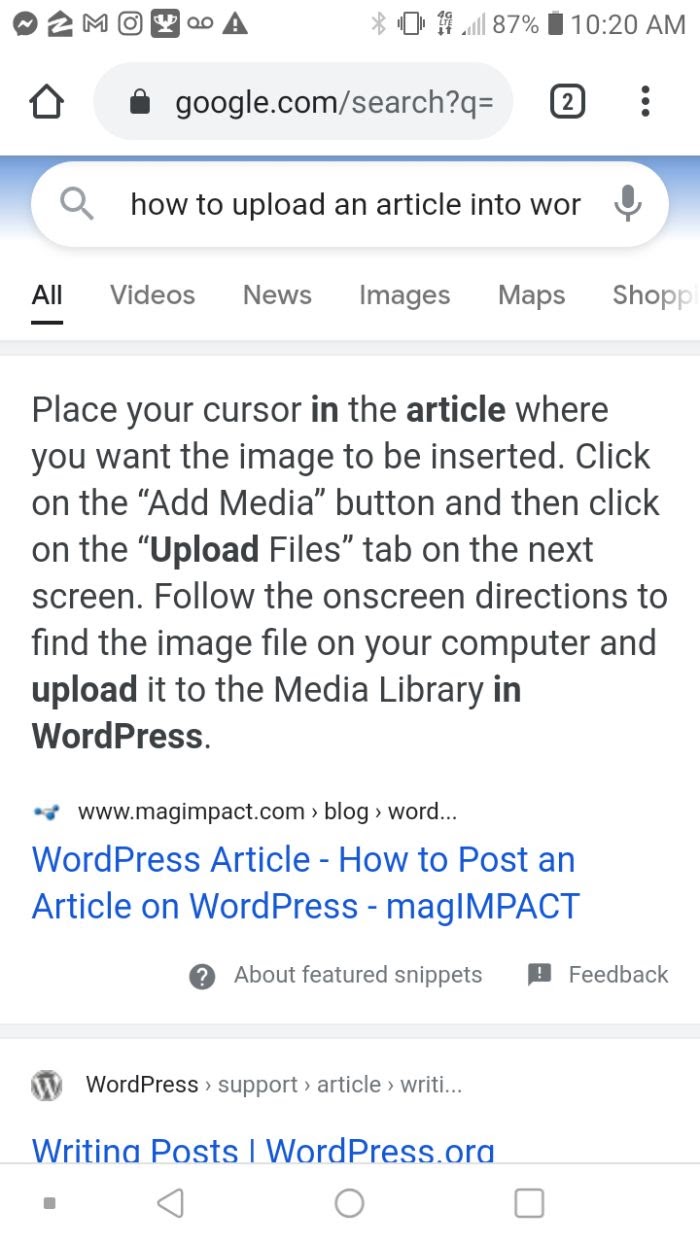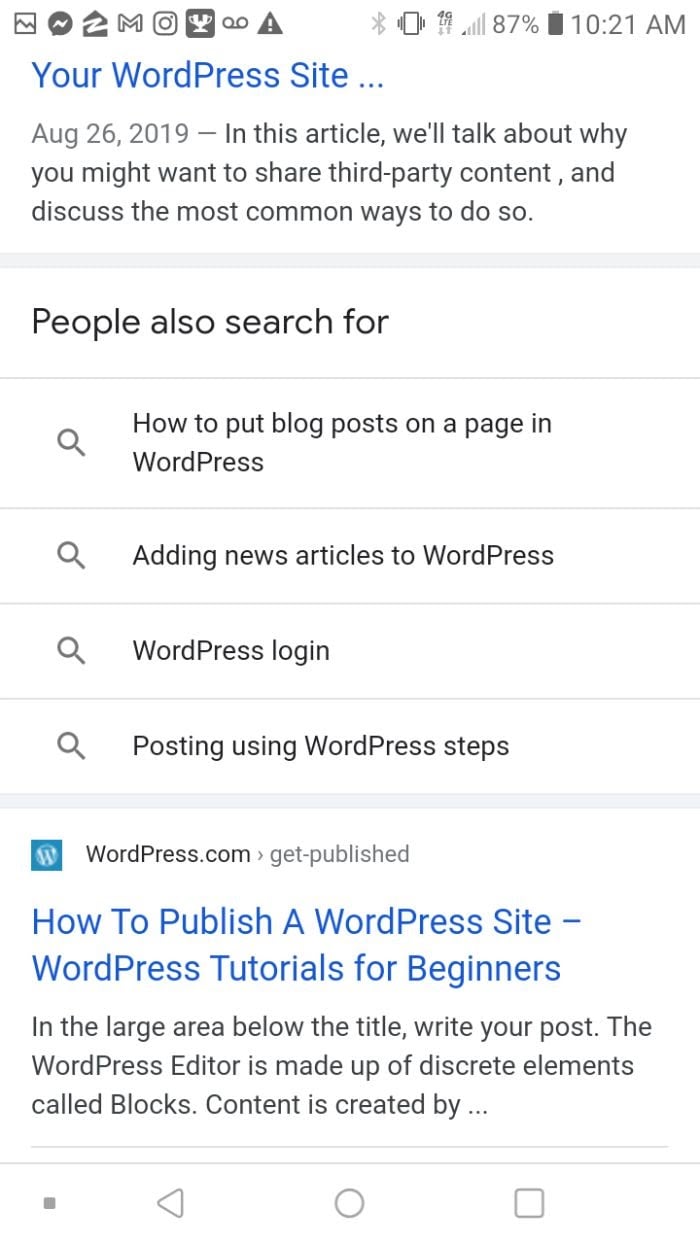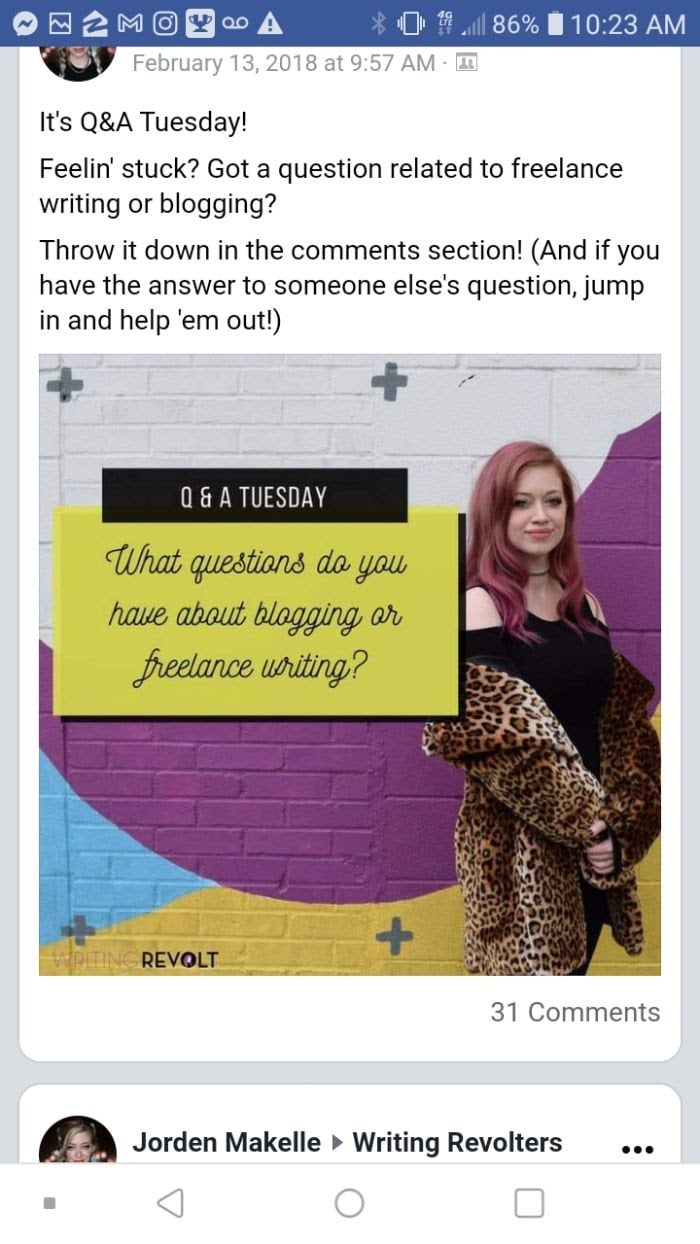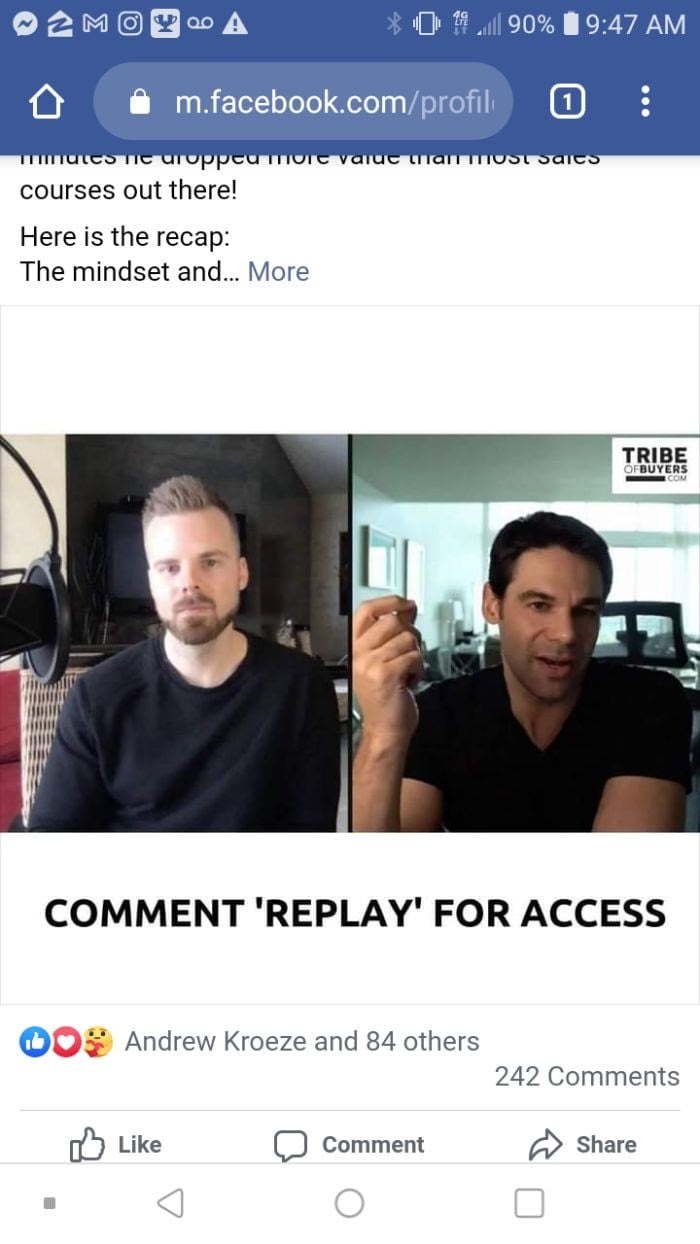People have questions, and they want answers to those questions. When they do, where do they go?
Well, they usually go to someone who has the answer, and if you’re lucky, that someone might be you.
The Q&A format provides a great way for you to answer many queries in a short amount of time. Best of all, you don’t even need to have the answers if you know how to find someone who does.
What is the Q&A Format, and Why is It Important?
Q&A stands for “question and answer,” which is similar to a FAQ page, but it usually provides a more personal experience for the viewer or reader. This is because a Q&A format often makes it possible for whoever is looking to get involved in the question-and-answer process.
If you watched a video about building an affiliate site from scratch, you could come in armed with Q&A questions. Hopefully, you have the chance to ask some of them, and if not, it’s likely that other viewers will raise the same inquiries as you.
This type of content can be done in a live video, chat, text, social media event, prerecorded video, in-person event, and more.
From a content creator standpoint, this format can help you drive more traffic to your site and provide your audience with more of the information they want. Here are some specific reasons you should pay more attention to the Q&A format.
Q&As Can Optimize Content for Organic Search
As we know, FAQ sections and pages do a lot for our SEO. Q&As take on a similar shape by answering important questions raised about a specific topic.
They’re a great way to target long-tail keywords and land featured snippets through targeting “question-based” keywords.
For example, if we head over to Google and look up “how to upload an article into WordPress.”

You’ll find that the first result provides a direct answer to that question. When you’re putting together question-and-answer content you want to find relevant questions that other people are asking on Google so you can potentially rank for those searches.
If you scroll down a little more on the page, you’ll find a section titled “People Also Ask (or people also search for).” Google makes it so easy for us by telling us what other people are searching for related to the keyword you typed into the search box. So, you may want to include some of those phrases in your Q&A session as well.

While you’re doing all of this, you’re including a variety of long-tail keywords that you can convert into a blog post to include along with your video. This is a fast and simple way to put together a keyword-rich piece of content without having to do too much research.
Q&As Help Your Audience Understand Information Better
Google makes it pretty clear in their quality guidelines that they want you to produce content for users, not search engines. It’s our job as content creators to provide answers and solutions to whatever it is people want to know. The question-and-answer format is the perfect place for you to address a large number of questions in a short amount of time.
All in all, we know that Google wants us to write great content and provide answers to questions upfront. The algorithm doesn’t favor people who beat around the bush, drag things on, and fluff up their content.
The sooner you can get someone on your page and give them the answer they want, the better.
One potential way to do this is by answering as many questions as you can in the shortest amount of time while still maintaining proper quality control. Doing this increases your chances of ranking for all of those keywords while also providing a bunch of answers to queries that people may have.
Q&As Are Easy to Create
Question-and-answer content is easy and fast to create because it creates itself. Compared with a FAQ section where you need to know all the answers, all you need to know here are the questions.
You’ll do your research ahead of time by seeing what competitors are ranking for, who has the snippets you want, what does the “people also ask” section say, and so on.
From there, you’ll craft those questions in a way that appeals to both Google and the people. Doing this ensures you keep Google happy while providing valuable and direct information (that also keeps Google happy).
Once you’ve done that, it’s up to the interviewee to provide you with the answers. This is an enjoyable way to put together some extremely valuable content with commentary from industry experts.
You may even be able to rank some of your video content for voice search.
6 Ways to Use Q&As in Your Content
You understand the importance of Q&A interviews and you might even have some ideas as to how you’ll get started. Here are some simple and effective ways you can incorporate this format into your content.
Live Q&A Sessions
Within the live Q&A we have two subcategories. One is you’re the expert and people are asking you the questions. Two is you’re the creator and you’re asking the expert questions from the community.
Both of these methods work but they require their own set of steps to prepare.
You’re the Expert
If you have a skill, talent, or area of expertise, you can set up a live Q&A session on your YouTube channel, social media, or via a Zoom link to your list. The goal would be to preach the value of attending your live session so you get a lot of people to attend.
As the day rolls around, continue to send follow-ups via email and social media motivating your audience to sign up for the question-and-answer session. Prompt them to prepare some questions ahead of time because you’ll be answering as many as you can during the time slot.
Keep in mind that you won’t be able to prepare answers to the questions because you won’t know what people are going to ask. You’re firing straight off the cuff, which has its pros and cons.
On one side, you’re going to seem genuine because people know you’re pulling answers right off your head. On the other side, there’s more room for error if you don’t know the answer or you answer incorrectly.
Make sure you’re recording the interview and breaking it down well enough so you can convert it into a piece of content for your blog or website. You should be able to take many of the questions from the live session and convert them into rankable content.
You’re the Interviewer
In this scenario, you’re no longer the expert. You might be the one with a huge audience looking to bring valuable information to said audience.
Do some outreach and find an industry expert that you want to interview live in a Q&A format. This will provide value to your audience and you’ll also be able to discuss it ahead of time.
Now you can prepare questions that will work from an SEO standpoint while also providing initial value to the people who attend the live event. Your goal should be to ask questions that are related to the questions that people are asking on Google.
They don’t have to be word-for-word in the live event, but they need to be close enough so you can convert the video into written content.
Recorded Video Q&A Interviews
This strategy could be an extension of the previous method or one of its own. You can interview experts on industry topics, commonly asked questions, or go completely off the cuff and see where it goes.
If you recorded your live Q&A that we discussed previously, this could serve as your recorded video interview.
You can also start from scratch. This has a few pros and cons.
You’ll be able to prepare more and discuss with the interviewee so they are prepared for whatever you’re planning to ask. You can also do more SEO work ahead of time so you can easily convert the interview into a piece of rankable content.
The downside is that it might not appear as genuine and you won’t have the opportunity to engage with your audience live because they’ll be watching a replay.
If you’re using this format for the first time, this could be the way to go.
Written Q&A Interviews

A text interview will function the same as a video, except the conversation will be written in text. You can do this live or prerecorded as well.
There are many different formats in which you can do this; Facebook groups, Twitter threads, and Reddit to name a few.
Make sure you’re keeping tabs on the questions that are being asked and saving everything so you can convert the information into a blog post later on. You may even be able to use some of the questions asked in a live Q&A when you have more context about what people want to know.
Q&As in Content Headers
If you’re trying to rank content around popular questions, you’ll end up putting them in header form in your blog posts. This strategy functions much like a FAQ, but the difference is that you’re seeking the questions or answers from a separate source.
For example, if you’re the expert, you’ll want someone else to provide the questions. You can do a social media post or an email blast asking people for questions related to your area of expertise.
Once you’ve compiled enough questions, you can take them and build out a blog post with all the answers.
This works best when focusing on one narrow subject and ensuring that all the questions are relatable to your audience.
If you’re not the expert, you’ll want to follow the same steps but instead, reach out for questions to ask someone else. This person may be a popular figure that will draw attention.
As a result, when you do your outreach, people will be excited to ask this person their questions and will likely check in on your blog post when it’s up.
Ads and Social Media Campaigns
Expert interviews can give your brand a nice boost because the experts provide name recognition and visibility if they share it with their audience. This is a powerful way to build trust, create a buzz, answer audience questions, and rank for a variety of long-tail keywords, all at the same time.

The example above shows how an entrepreneur interviewed an industry expert and was able to provide a ton of value without having to actually know the subject himself. You can do this as well.
Best of all, it’s live without actually being live so you can prepare questions ahead of time and still be able to answer inquiries from the audience on the spot. This method allows you to control the quality of your answers, cater to the SERPs, and provide massive value to your audience.
Question Now; Answer Later
I like this method for YouTube, especially if you run a brand where people don’t often get to see “behind the curtain.” A lot of YouTubers do this when they provide a “day in the life” video.
You can create a social media post or send out an email to your list. Ask them what they want to know about you and what questions they have about you on a personal level.
Take a break from the business talk and allow your audience to get to know you. This can show that you’re relatable and people prefer to buy from people they know and trust.
Conclusion
There are really no limitations to what you can do with the Q&A format. Most importantly, it should be relevant to your brand and provide value to your audience.
If you can take the content and convert it into a blog post or repurpose it in some way, that’s a bonus.
Just remember that the featured snippets live in these Q&A sections so there’s a lot of ranking juice here if you can keep your question-and-answer sessions on topic with what people are asking Google.
Do you regularly create Q&A content? If so, what methods do you use?
The post Going Beyond FAQ: How to Use the Q&A Format in Your Content appeared first on Neil Patel.


